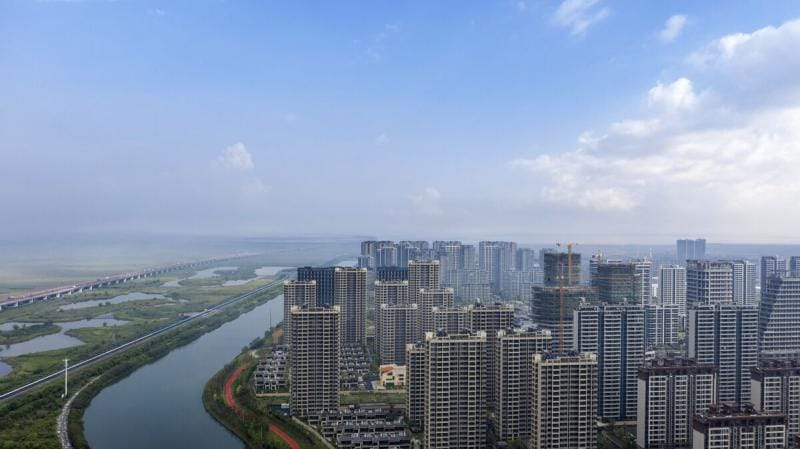
Shannon's excerpt from the article: "🎯 Bloomberg [excerpt]: Three years ago, Chinese policymakers sought to engineer a gradual slowdown in the country’s debt-laden #realestate sector to tame bubbly prices and snuff out financial risk.
What they got instead was a real estate meltdown that’s destroyed household #wealth in the world’s second-largest economy, wrecked the offshore #bond market and deprived local governments of much-needed #revenue.
The following 10 #charts show the wide impact of the property crisis throughout #China’s #economy.
- Trillion-Dollar Sales Slump
Nationwide property sales peaked at 18.2 trillion yuan ($2.5 trillion) in 2021. By that time, real estate had become one of China’s largest industries — so big that the chairman of China Vanke Co., one of the country’s largest developers, said he couldn’t find a lucrative, alternative business which would allow him to diversify.
The following year, apartment and commercial property sales nationwide plummeted by 4.9 trillion yuan, or 27% — the biggest annual slump since 1998 — as cheap money, favorable policies and faith in ever-rising home prices vanished. At the current pace, sales will decline 1.8 trillion yuan this year, according to Bloomberg calculations based on official data for the year to date.
In 2024, property sales are expected to shrink further and developers are likely to face more liquidity problems.
'It is still too early to call the bottom,' said Lu Ting, chief China economist at Nomura Holdings Inc. 'We see a material risk of another dip for the economy led by a still-depressed property sector.'
S&P Global Ratings forecasts sales could fall to around 10 trillion yuan in a negative scenario. That would take the sector’s activity back to levels seen in 2015 when China’s economic output was about half of the current size.
- Broad Spillover
The property sector has turned from driving growth to weighing it down. Its output shrank 51 billion yuan in the first three quarters, after decreasing 340 billion yuan last year, according to calculations based on official data.
A smaller real estate sector is widely seen as positive for the economy in the long run, freeing up people and capital for more productive industries. But the short-term shock is painful as real estate is connected to more than 60 sectors in China, according to well-known macro analyst Ren Zeping, former chief economist of China Evergrande Group. The spillover effect is seen ranging from upstream industries such as resources and building materials to downstream ones including home appliances and leasing. ...
3. Investment Rout ...
4. Local Governments Earn Less ...
5. Developer Bonds Gone ...
6. Market Value Plunge...
7. Consumption Hit ...
8. Mass Layoffs ...
9. Shrinking Wealth of Tycoons...
10. Sprawling Protests ..."
#News #business

